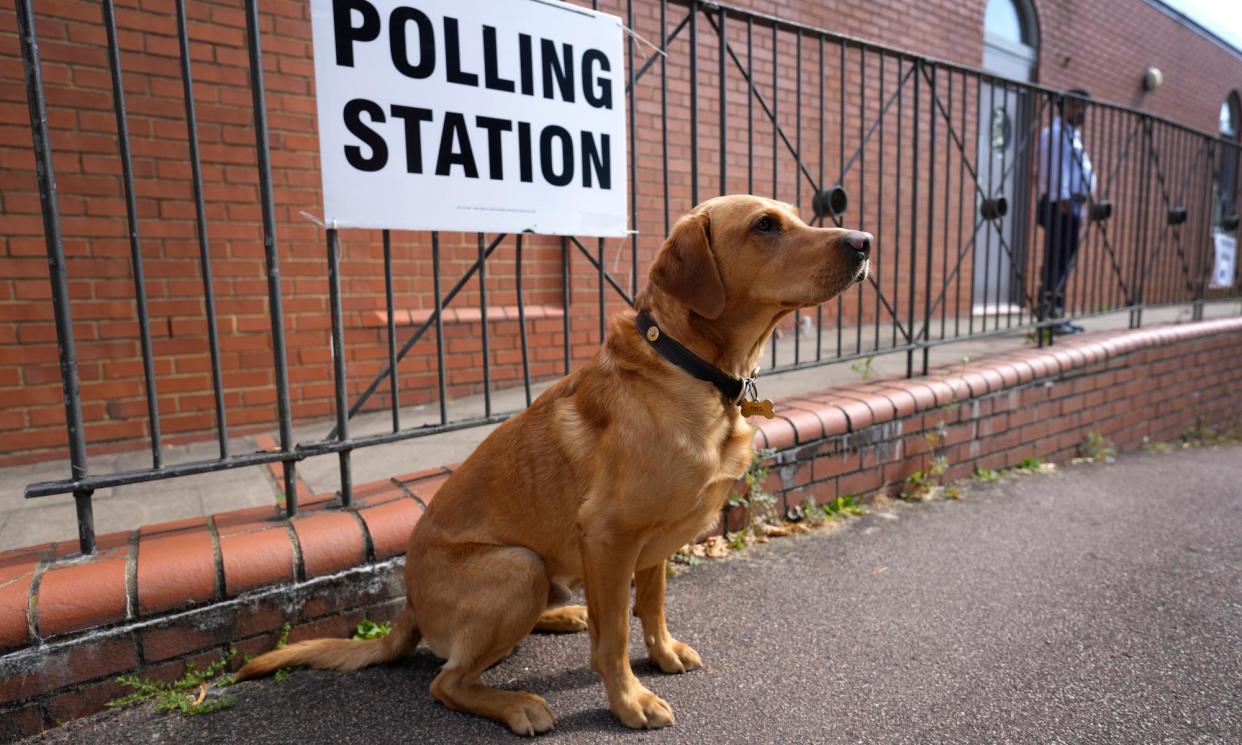UK political parties on track to spend £1m on election day online ads

The UK’s political parties are on track to spend more than a million pounds on online adverts on Thursday, circumventing a media blackout rule that forces television and radio stations to stop their election coverage when polls open.
British parties have traditionally ceased top-level campaign activity when voting began as they had no way to get out their message out. This is because of a longstanding broadcasting rule, enforced by the media regulator Ofcom, that states: “Discussion and analysis of election and referendum issues must finish when the poll opens.”
The switch to online campaigning over the past two decades has increasingly made a mockery of this rule, with early indications suggesting political parties are viewing Thursday as an incredibly important campaign day for pushing their core messages to wavering voters.
Sam Jeffers of WhoTargetsMe, which has monitored election advertising in the UK for the last decade, said substantial funds had been released for Thursday. “The parties are on track to spend a million pounds today on Meta and probably another £250,000 on Google,” he said.
If these figures are correct, it could mean that more money is spent by political parties buying online political advertising on polling day than was spent online during the entire 2015 general election campaign.
Labour has bought adverts on the homepages of more than 50 websites, including the Sun’s, urging people to vote for change. The party is also continuing to run adverts on Facebook, Instagram, YouTube and the free version of Spotify, with the theme of reassuring people that it is safe to back the party.
The Conservatives are spending hundreds of thousands of pounds pushing localised Facebook adverts warning about the risks of a Labour “supermajority”, while Nigel Farage is campaigning for Reform UK by tweeting out policies and uploading TikToks of him having a pint of beer.
By comparison, broadcasters have been limited to factual reporting of politicians, including Rishi Sunak and Keir Starmer, posing in front of their local polling stations, along with information about how to vote.
This means that a voter who listens to podcasts and watches YouTube will feel the election is still being fought hard. But a voter who tunes in to the lunchtime television news or switches on the radio will get a different impression, with more analysis of the US presidential election than the UK contest.
Michael Crick, the former Channel 4 News political correspondent, said the ban on election day coverage was “a relic from the dinosaur age of the 1950s”, especially because a quarter of voters were likely to have already returned their ballot by post.
He said the rule should be abolished on the principle of media freedom, because it was a hangover from 70 years ago. “It was the broadcasters who imposed the rules on themselves, because they were worried they would be accused of bias. Up until 1958 they could not even cover an election campaign,” he said.
Because the rules were written before newspapers transitioned from print to the internet, there is also a two-tier system for online coverage which heavily restricts what can be put on broadcasters’ websites. While most news outlets, such as the Guardian, are free to run analysis and campaign coverage throughout polling day, the BBC’s online offering is restricted to telling people how to vote – and sharing pictures of them voting with their dogs.
It remains illegal for any individual or news outlet, punishable by a maximum of six months’ imprisonment, to publish exit polls based on how people said they voted before the polls have closed.


